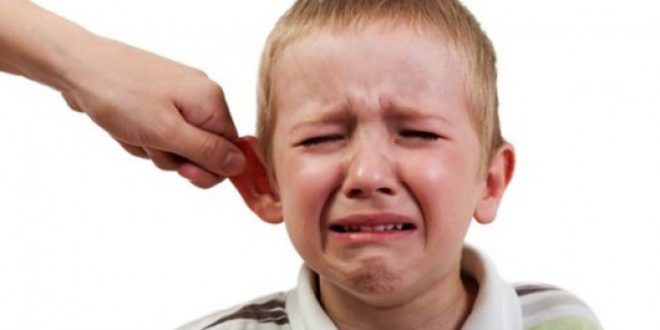The threat is more than just child abuse
A recent study shows that bullying (threat or intimidation) may have a far greater impact than child abuse!

"Infertile children are more at risk of anxiety than children who are abused five times," the Daily Mail said in a report. A study examining the children of the United Kingdom and the United States found a link between child intimidation, anxiety, depression, and self-harm in adulthood.

Where it has been discovered that people who have been bullied from their peers in childhood are more likely to have mental health problems at a young age than those who have been abused by adults, including their parents.
But headlines are misleading - this figure reflects only the results of the US study. While the UK results that are part of this study, which includes more than three times the number of children studied in the United States, were not nearly surprising.
There are also some problems with the way this study was designed. They depend on children and their parents who decide on their own experiences, which will reduce the reliability of the results. For obvious reasons, parents may underestimate the importance of mistreatment of their children.

However, the editor concluded that the school, health services and other agencies should coordinate their response to child terrorism, which appears to be an available proposition.
If you are concerned about your child's exposure to terrorism, it is important that you or your child or both talk to school. You should ask them about their anti-child terrorism policy, which each school must apply under the law. This enables you to see how the school plans to prevent and deal with bullying.
Where did the story come from?
The study was conducted by researchers from the University of Warwick and the Duke Medical Center, both in the United Kingdom.
The study was funded by Wellcome Trust, Medical Research Council, UK Economic and Social Research Council, National Institute of Mental Health and National Institute of Drug Abuse, Narsad (Early Professional Grant) and William T. Grant Foundation in the United States.
It has been published in the Medical Review Journal and the Lancet Psychiatry on the basis of open access, so access and reading are free on the Internet as well as downloaded as a PDF file.
The study has been widely covered by the media. However, a tendency to stress that children who are bullying is more likely to be at risk of being abused by adults than five times is misleading.
This figure is cited in other news sources as well as accompanying press releases, but only reflects the results of the study in the United States. The UK study results, which include more than three children in the United States, were not surprising.
What kind of research is this?
This research is a group study that explores the long-term effects of mental health on bullying in childhood compared to children who are abused by adults.
Child abuse by adults, such as neglect, cruelty and sexual exploitation, is a cause for serious public concern, the researchers say. It has been shown to increase the risk of mental ill health, drug abuse and suicide attempts.
Verbal abuse and physical abuse by other children is also a global issue, with one in three children in 38 countries reported to have been bullied. It may also have similar negative effects in adulthood.
Researchers aim to find out whether mental illness is the result of both ill-treatment and bullying of children, or that children's bullying has an independent effect.
What is included in the research?
The research was based on two massive ongoing mass studies on families. One of these studies includes 4,026 children from the United Kingdom, while the other includes 1,420 children from the United States.
The study in the UK aims to examine the health and development of children during childhood and beyond. The participants were pregnant women whose expected date of birth was between April 1991 and December 1992.
From the first period of pregnancy, parents complete the study of postal questionnaires on their health and the health and development of the child.
The mother provided information on ill-treatment in children between the ages of 8 and 8.6 years and reports of cases of bullying against their children when they were between the ages of 8, 10 and 13. The term "ill-treatment" was assessed as expressing physical assaults Emotional or sexual abuse, or "serious ill-treatment with parents".
Children attended annual assessment clinics, including face-to-face interviews and psychological and physical tests, from the age of seven and above.

The study in the United States is based on a sample of three groups of children aged 9, 11 and 13 who were recruited in 1993. Parents and children were interviewed repeatedly and asked about bullying and abuse.
This included physical assault, sexual assault, or severe discipline from parents. Children have been examined with regard to behavioral problems and mental disorders up to youth.
Researchers may judge the results for factors that are believed to increase the risk of child abuse and bullying, including child abuse related to child sex, and family and mental health problems. The researchers assessed these factors during pregnancy for the UK exposure study, based on annual interviews with parents
sad
yes@joeyarnoldvn